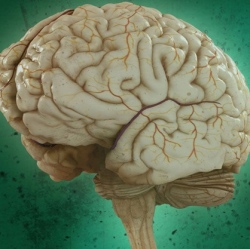
A team of researchers led by Sudha Seshadri, a Boston University School of Medicine (MED) professor of neurology, analyzed data from the Framingham Heart Study, the nation’s longest-running epidemiological study. Begun in 1948 and supported by the National Heart, Lung, and Blood Institute (NHLBI), it has been run by BU since 1971.
The researchers found that people over age 65 who consistently sleep more than nine hours every night had twice the risk of developing dementia and Alzheimer’s disease within the next 10 years when compared to those who slept less than nine hours a night. Seshadri says longer periods of sleep can also be a sign of depression.
MED researchers analyzed data from 2,457 Framingham study participants who responded to questions about their sleep patterns as part of their regular medical exams. Over a 10-year period of follow-up exams, 234 of these participants received a dementia diagnosis. By reviewing the responses related to their sleep patterns, the researchers found a statistically significant correlation among those who reported increasing their sleep to more than nine hours a night. Findings from the study, which received funding from the National Institute on Aging, the National Institute of Neurological Disorders and Stroke, and the NHLBI, were published in February 2017 in the journal Neurology.
The results suggest that longer sleep sessions may be a symptom rather than a cause of the brain changes that occur with dementia. It does not mean that family members should intervene by waking up older loved ones, Seshadri says.
Earlier detection, however, can help patients and their families plan and obtain services and support.
“One of the concerning things can be that before there is a formal diagnosis of dementia, people can sometimes fall victim to scams,” says Seshadri. “They can end up in an unsafe situation, because it’s not recognized that they may be able to drive a car; they may be able to live alone at home, but not respond to something unexpected. Recognizing the signs earlier can provide access to services, can enable people to get the admittedly limited, but valuable treatment options that are available, and could help protect them from potentially dangerous situations.”
